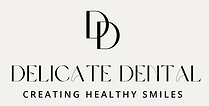

Bad Breath
Bad breath. Blech. No one likes to smell it and no one likes to talk about it. But halitosis affects about 25% of the population, or one in four people. Chances are, you’ve told someone you’re close to that their breath stinks. Or maybe, to your own embarrassment, someone has said you have bad breath. After you reach for the mints, it’s time to educate yourself on bad breath, how you get it, and how you can get rid of it.
The scientific name for bad breath is halitosis, and if you have a bad case of it that gum, mouthwash or a good brushing won’t solve, you suffer from chronic halitosis. Unlike simple morning breath, which everyone has, halitosis stays with you for a long period of time no matter what temporary measures you take.
If consistent brushing and flossing don’t resolve the odor, schedule an oral health exam at Delicate Dental. The cause may be dry mouth, odor-producing bacteria, or another underlying oral health condition.
What Causes Bad Breath?
Bad breath can result from poor oral hygiene, gum infections, tooth decay, or the buildup of bacteria on the tongue and inside the mouth. Even digestive issues like an upset stomach can cause halitosis. People who don’t brush and floss at least twice a day are more likely to experience bad breath.
The primary cause of bad breath is an overgrowth of bacteria in the mouth. Hardened or deeply embedded bacteria cannot be removed by regular brushing and flossing alone. These bacteria accumulate from leftover food particles, forming plaque that standard oral care can’t fully eliminate.
Plaque contributes to tooth decay and gum disease, affecting the tongue, gums, and other soft tissues. As the bacteria metabolize, they release sulfur-based gases responsible for the unpleasant odor commonly associated with halitosis.
Less frequently, bad breath can be caused by postnasal drip from allergies affecting the sinuses. Another cause is gastroesophageal reflux disease (GERD), where stomach acids flow back into the mouth, often during the night. Regardless of the cause, we can identify the source and offer effective treatments.
Treating Bad Breath
Let our registered dental hygienists professionally deep clean your teeth at least twice a year or every six months. This will remove any buildup of odor-causing plaque. Our dentists will recommend the right antibacterial rinse and other home-care products as well.
Of course, one of the best ways to eliminate bad breath is to eliminate tooth decay. Take proper care of your teeth and gums, and visit your dentist regularly for checkups and professional cleanings. Frequent visits to our Plano dental office will help Dr. Chen catch the signs of complex oral health concerns early. We will provide conservative and comprehensive dental care.
Brush your teeth with a soft-bristle toothbrush at least twice daily, preferably after each meal. Leaving food particles in your mouth will lead to bacteria. If you can’t brush after a meal, at least rinse your mouth with plenty of water. This breaks loose as much food as possible trapped between your teeth.
Brush using small circular motions and hold your toothbrush angled toward the teeth at the gum line. This is where particles, bacteria, and debris tend to collect. Floss at least once at the end of the day right after you brush, and then rinse your mouth with an antibacterial rinse.
Another effective way to eliminate halitosis is by using a special tongue scraper. If your chronic bad breath is not a dental issue, we recommend discussing it with your general practitioner. A range of health concerns, medications, and lifestyle habits can be contributing factors.
1. Comprehensive Oral Examination. This includes checking for:
-
Plaque and tartar buildup.
-
Gum disease, such as gingivitis or periodontitis.
-
Cavities, which can trap bacteria and food particles.
-
Dry mouth (xerostomia), a condition that reduces saliva production, leading to bacterial growth.
By addressing these issues, our dentist helps remove immediate sources of odor-causing bacteria.
2. Identifying Systemic Causes
Bad breath isn’t always caused by oral health issues. The dentist evaluates whether systemic health conditions like sinus infections, acid reflux, or diabetes might be contributing to the problem. If Dr. Dee suspects non-oral issues, we may refer you to a medical doctor or collaborate with other healthcare providers.
3. Professional Dental Cleaning
Our hygienist may preform a deep cleaning, such as scaling and root planing, to remove bacteria and tartar from hard-to-reach areas. This not only freshens breath but also prevents further gum issues that could worsen halitosis.
4. Customized Treatment Plans
Dr. Dee creates a treatment plan tailored to the patient’s needs. This could include:
-
Medications: Prescription antimicrobial mouthwashes, toothpaste with higher fluoride content, or treatments for dry mouth.
-
Lifestyle Advice: Suggestions on diet changes, hydration, or avoiding foods and habits (like smoking) that can contribute to bad breath.
-
Restorative Work: If cavities or ill-fitting dental work are contributing to odor, we may recommend fillings, crowns, or other solutions.
5. Educating Patients on Proper Oral Care
A significant part of curing halitosis is improving your daily oral hygiene. The dentist may:
-
Show proper brushing and flossing techniques.
-
Recommend tongue scraping to remove bacteria from the tongue, a common source of bad breath.
-
Suggest specific products, such as alcohol-free mouthwashes or sugar-free gum, to enhance oral care routines.
6. Long-Term Monitoring and Follow-Up
Halitosis treatment doesn’t always end with a single appointment. Our team can monitor the patient’s progress over time, making adjustments to the treatment plan if needed. Regular follow-ups ensure that the problem doesn’t return and allow us to address any recurring issues early.
The ultimate goal is to identify and eliminate the source of bad breath to restore your confidence and oral health. With a combination of professional care, personalized advice, and patient education, we will provide effective solutions to cure bad breath and prevent it from coming back.
